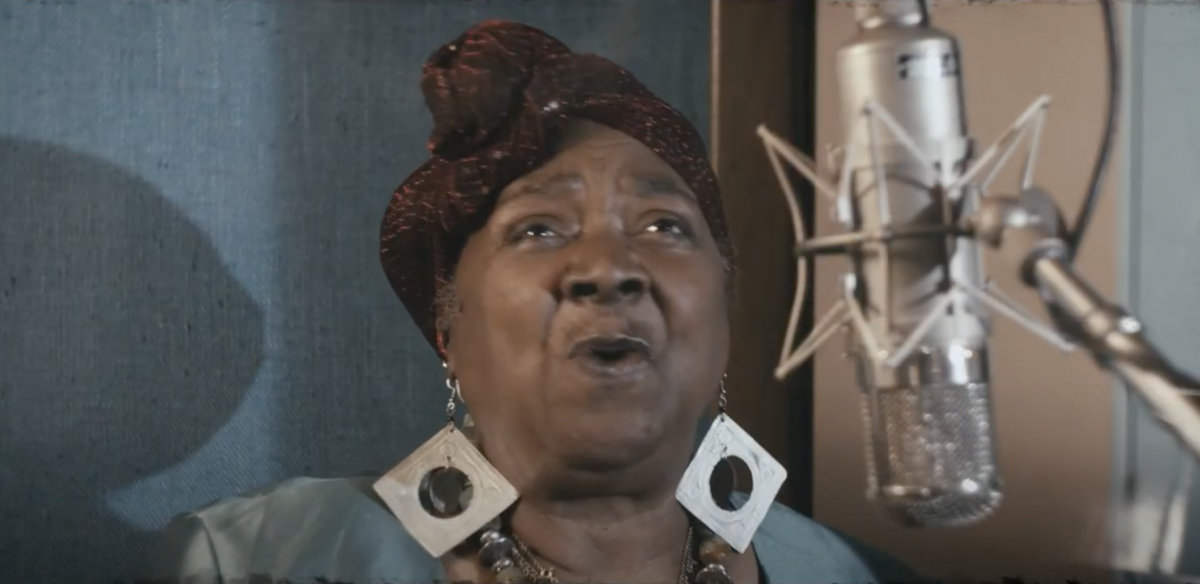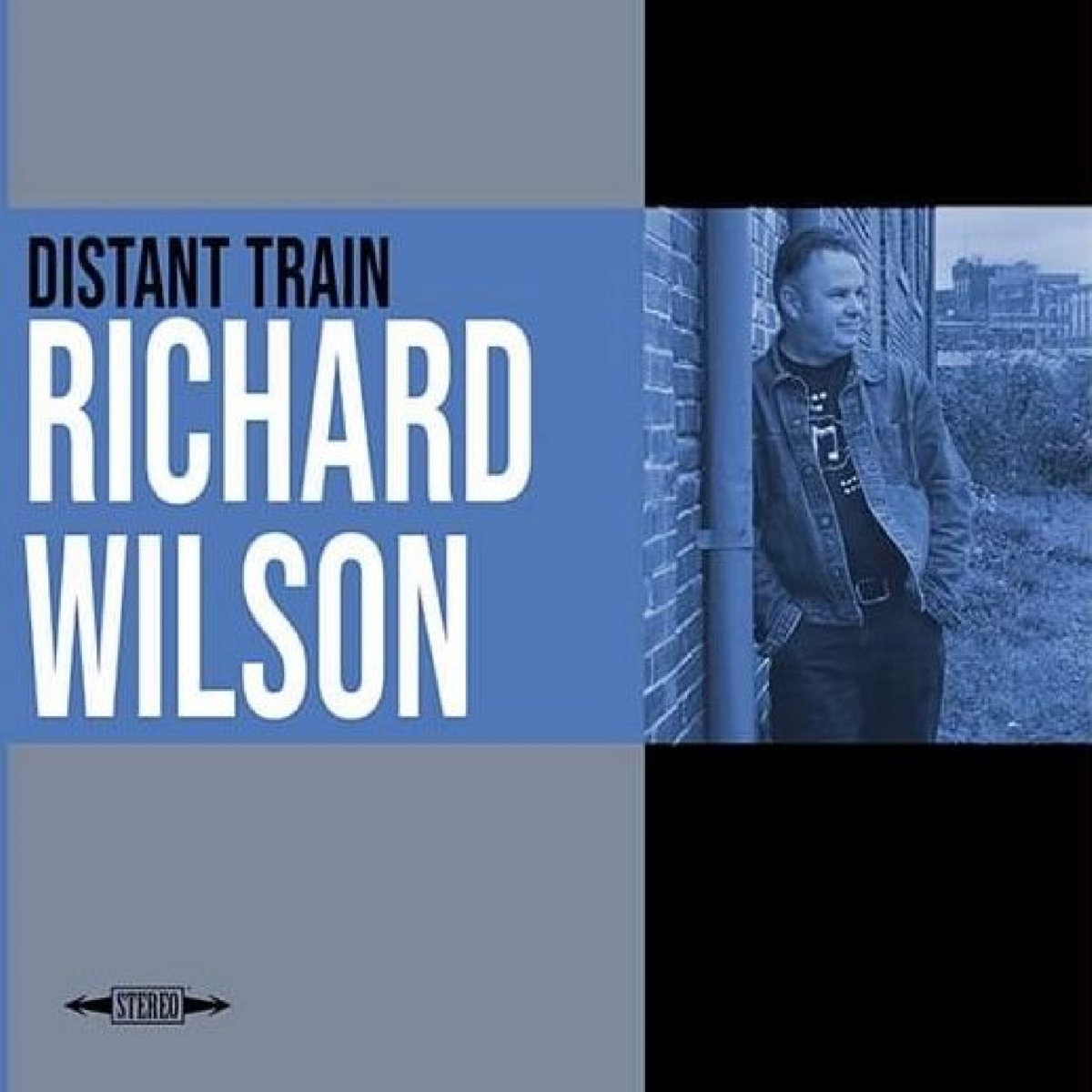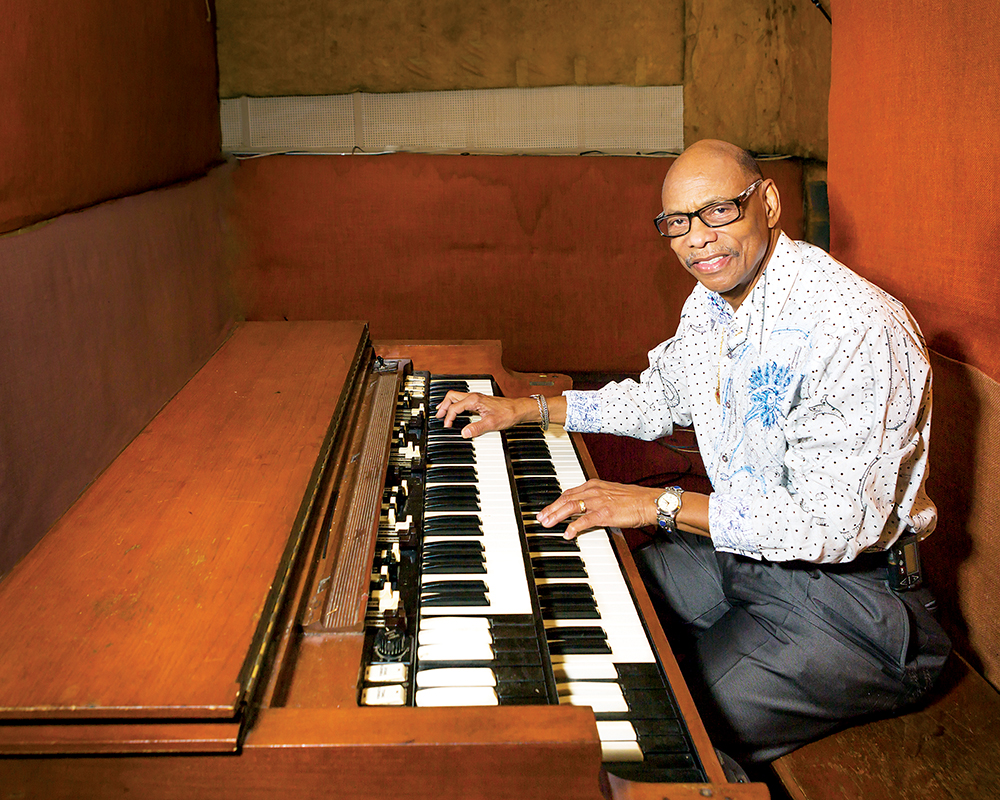When you have a chance to speak to a musical innovator like the Rev. Charles Hodges, you don’t think twice. Here, still living and performing among us, is a man who redefined the place of organ in soul music, shaping the hits of a generation by way of forging his own voice. Now, Hodges has found his voice on the printed page as well with the release of his authorized biography, My Story: Charles Edward Hodges Sr., written by Delois Jackson.
One side benefit of the book’s release this year has been that Hodges is eager to talk about his life. And, sitting down to hear him tell the tales, one realizes that the book, with only about 80 pages of narrative, barely scratches the surface. That may be because of the roundabout way the book came into being.
“This book is more of an introduction,” Hodges explains. “I didn’t use a professional writer, but she is known for her work. Delois Jackson. She’s a member at the church where I’m an associate minister, and she noticed my shoes and the way I dressed. That captured her imagination — she didn’t know anything about me. So she started asking members of the church, and they’d say, ‘You don’t know him?’ One day she came to me and asked if I’d be interested in her doing a book on me, and I said, ‘Yeah, that’d be kind of interesting.’”
Such understatement is typical of a man whose watchword is humility. “It’s nice, feeling like a hero,” he says, “but I’m one of those humble heroes, I guess.” That quality is echoed in the book itself, which bears an old-school formality and dignity that is rare in music biographies. Indeed, it captures some of the spirit of the ministry to which Hodges has dedicated his life for the past 23 years.
Similar to the way certain words are highlighted for emphasis in the Bible, key phrases in Hodges’ life are singled out by the author. “We were poor but never hungry,” reads one quote. “I often went to the icebox and kitchen cabinets looking for food.” Later, Jackson notes that “For Charles, using crack cocaine the second time led to an eleven-year nightmare of drug use.” Such an approach distinguishes the volume from more conventional music biographies. It’s more like a homespun sermon, looking unflinchingly at the whole of his life, from his rural upbringing to his studio session days, from drug addiction to his own redemption.
Most readers may already know Hodges’ work under producer Willie Mitchell, who dubbed him “Do Funny” for the unpredictable flourishes Hodges would bring to a track. Hits by Al Green, Ann Peebles, O.V. Wright, Syl Johnson, and Otis Clay all bore Hodges’ unique stamp. But one delight of this book is its deeper look at the roots of the Hodges family, including Charles’ two brothers, “Flick” and “Teenie,” who would also become integral to the Hi Records sound. All of them came up under the musical guidance of their father, Leroy Hodges Sr., in rural Germantown.
“My dad was one of the greatest blues piano players in the city,” says Hodges now. “I’m going to say in the world. And I’m not saying that just because he was my dad. I still can’t understand today how he could do the things he did. He played that boogie and he wouldn’t skip a beat!” But Leroy Hodges Sr. was content to see what instruments his sons took to naturally before he taught them more.
“My dad wouldn’t help me until he saw that I wanted to do it,” Hodges recalls. “We brought the piano in the house when I was about 11 years old. And there was about a year where I would get on the piano and just bang it. At about age 12 was when he came over my shoulder. He’d say, ‘No, do it like this.’ And I always watched him. So by 16, I was in the Memphis musicians’ union.”
The path from childhood to success, to addiction, recovery, and redemption, gives this book a philosophical bent, something that comes out in Hodges’ casual conversation to this day. “I’ve had some good times and some bad times. You don’t trade that for nothing,” he reflects. “That’s something to hold on to. Because you can grow from anything. I love adversity because it carries you somewhere else.”
Rev. Charles Hodges is the organist for Unity Baptist Church in Collierville and is still active in both the gospel and secular traditions, onstage and in the studio. His biography can be ordered from xlibris.com. He will discuss and sign copies of his book on Saturday, December 11, 3-5 p.m., at the Memphis Listening Lab.


